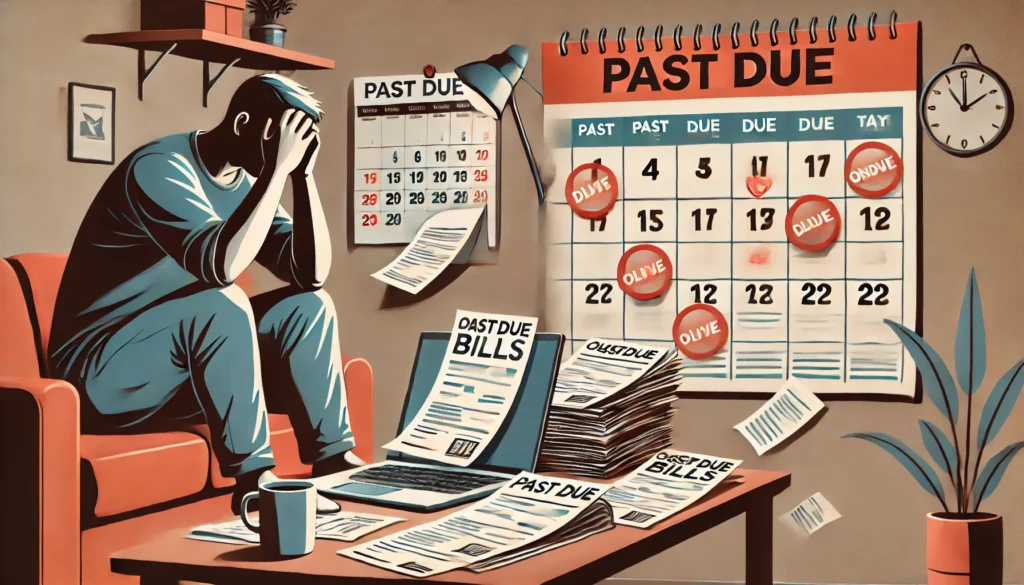Paying bills late can be a common issue, but its impact on your credit score is significant.
Many people don’t realize how much a single late payment can hurt their financial standing.
If you’re curious about how late payments affect your credit score and what best practices you can adopt to avoid these pitfalls, you’re in the right place.
We’ll also explore if there’s any flexibility for late payments without hurting your score.
Key Takeaways:
- Late payments can drastically lower your credit score.
- The longer a payment is overdue, the worse the impact.
- Consistent on-time payments are crucial for maintaining a good credit score.
- Some lenders offer grace periods, but this varies.
- Setting up automatic payments can help prevent late payments.
What Happens to Your Credit Score When You Pay Bills Late?

Late payments can significantly damage your credit score.
When a bill is overdue, it is reported to credit bureaus. For instance, a single late payment that’s 30 days overdue can reduce your score by 60 to 110 points, depending on your credit history.
The impact is more severe if your score was high initially. Payment history makes up 35% of your FICO score, emphasizing the importance of timely payments.
How Long Does a Late Payment Affect Your Credit Score?
The impact of a late payment isn’t short-lived. Late payments can stay on your credit report for up to seven years.
The severity of the impact diminishes over time, but the first two years are the most critical. For example:
- 30 Days Late: This can drop your score by 60 to 110 points.
- 60 Days Late: The impact worsens, and your score can fall by 100 to 200 points.
- 90 Days Late: Expect a significant drop of up to 200 points or more.
The longer the payment is overdue, the greater the negative effect on your credit score.
Can You Make Late Payments Without Affecting Your Score?
While it’s always best to pay on time, some lenders offer grace periods. Grace periods are extra days given past the due date during which a late payment won’t be reported to credit bureaus.
These periods vary by lender and can range from a few days to a couple of weeks.
For example, if your lender has a 10-day grace period and you pay within those 10 days, your credit score remains unaffected. It’s essential to know your lender’s policy on grace periods to avoid any negative impact on your credit score.
What Are the Best Practices for Bill Payments?
- Set Up Automatic Payments: Automating your payments ensures they are always on time. Most banks and credit card companies offer this feature.
- Use Payment Reminders: If you prefer manual payments, setting up reminders on your phone or through email can help you remember due dates.
- Create a Budget: A well-planned budget can help you manage your finances better, ensuring you have enough funds to cover all your bills.
- Prioritize Bills: Pay essential bills first, such as rent, utilities, and loan repayments, to avoid penalties and negative marks on your credit report.
- Monitor Your Credit: Regularly check your credit report for any discrepancies or late payments that have been incorrectly reported.
How Can You Rebuild Your Credit Score After Late Payments?
If late payments have already affected your credit score, there are steps you can take to rebuild it. Start by making all future payments on time.
Consistency is key.
You can also consider using a secured credit card or becoming an authorized user on someone else’s account to demonstrate responsible credit use.
Over time, as you build a history of on-time payments, your credit score will improve.
Rebuild your score with proven techniques
We showed the way to more than a thousands people of how to manage bills effectively and rebuild the score with bigger impression.
Conclusion
Paying bills late can have severe consequences on your credit score, but by understanding the impact and adopting best practices, you can avoid these pitfalls. Whether it’s setting up automatic payments, using reminders, or prioritizing your bills, proactive steps can help maintain a healthy credit score.
If you ever find yourself in a situation where a payment might be late, knowing your lender’s policies on grace periods can save you from unnecessary damage to your credit. Consistent, on-time payments are the foundation of a strong credit score and financial health.




